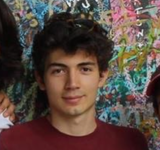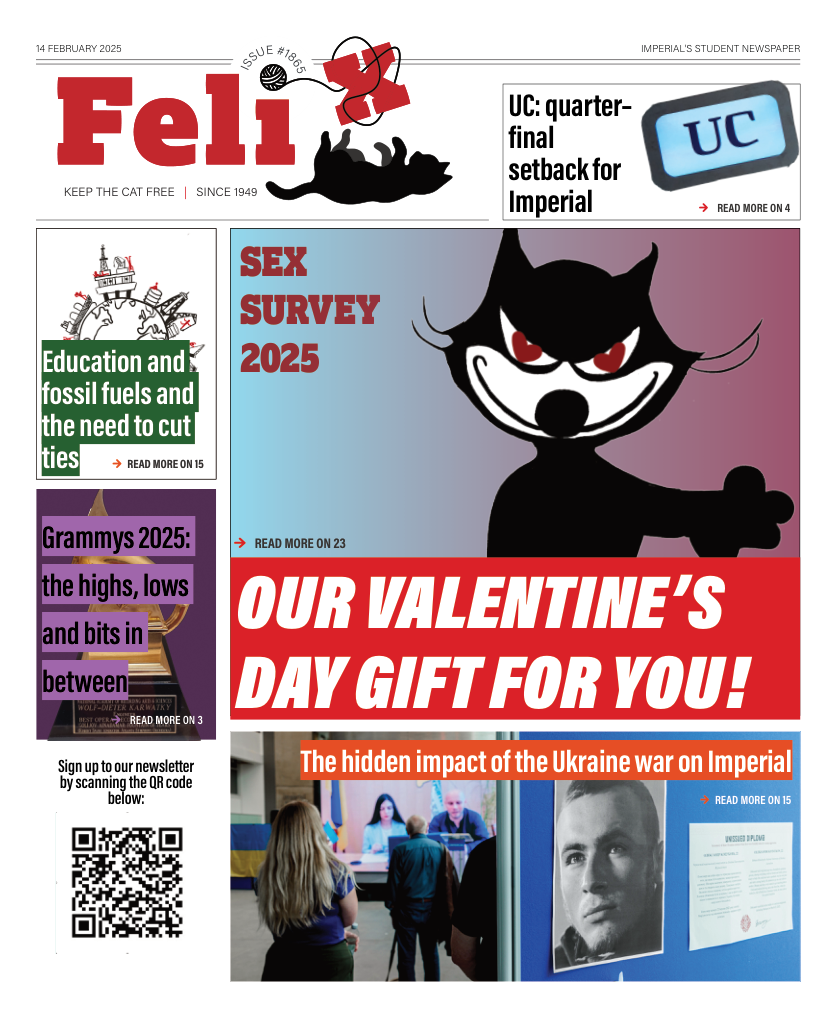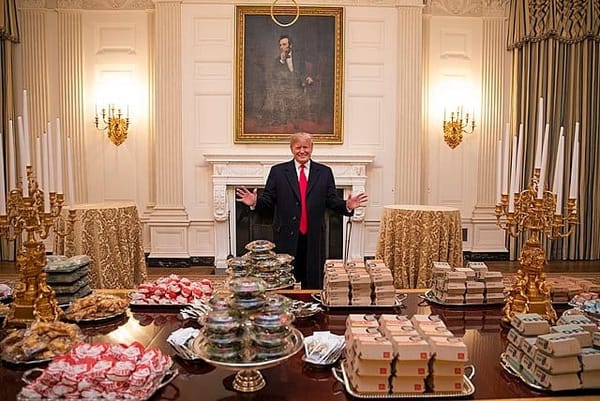The hidden impact of the Ukraine war on Imperial students
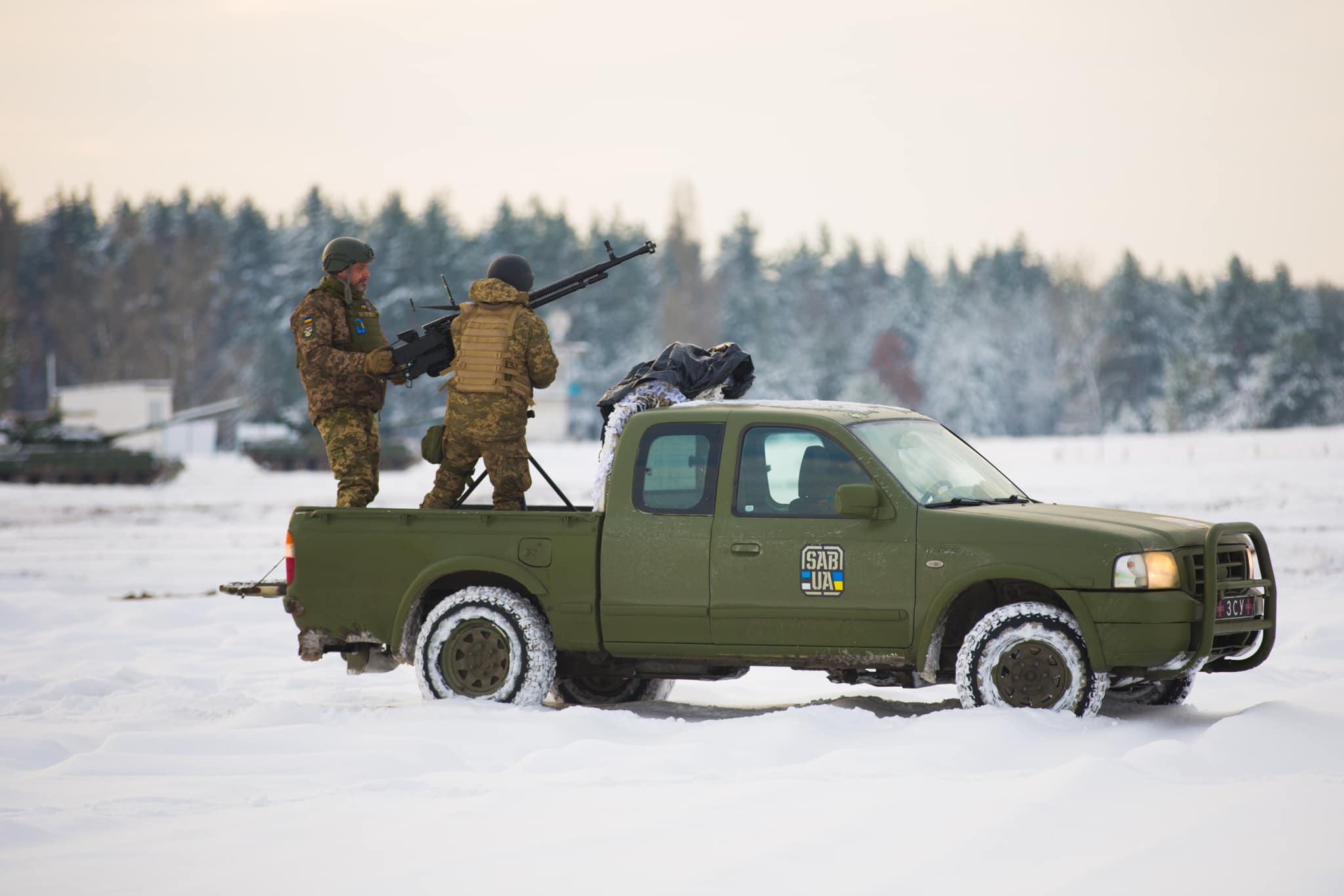
Russia’s brutal and unjustified invasion on Ukrainian soil enters its fourth year. This grim anniversary concludes a year marked by heavy losses for both sides, the intervention of foreign troops on the frontline, and mounting war fatigue both in Ukraine and its allies. Indeed, the conflict has accelerated in the past months, and important territorial losses combined with political uncertainty – mainly caused by the recent administration change in the United States, Ukraine’s largest military supplier – have increased doubts on Ukraine’s ability to repel the invader.
The three years of invasion have been gruelling. While estimates vary, most analyses concur on a military death toll of around 60,000 for the Ukrainian army and 150,000 for the Russian army, excluding their respective affiliates. Over 40,000 civilian casualties (war-related deaths or injuries) have been confirmed, although the actual figure is expected to stand much higher.
The innumerable atrocities of the conflict, renormalisation of threats of nuclear warfare, and food shortages due to the war’s disruption of global supply chains have been widely reported on. But three years on, Felix has sought to understand the impact of the conflict on Imperial students having personal, familial or cultural ties to Ukraine and Russia. I sat down with Danil Zadorozhnyi, President of the Ukrainian Society, and Alex (name pseudonymised), a member of the Russian-speaking society, to collect and share their stories.
Ukrainian society interview
The Imperial Ukrainian society was created in 2022, in the wake of the invasion. Previously, most Russian-speaking Ukrainian students were members of the Russian-speaking society. “When the war started, the Ukrainians felt the need to feel their identity as Ukrainians, not just a part of Russia, because that was sort of the reason for the war”, explained Danil. He added that the community includes both Russian- and Ukrainian-speaking Ukrainians (over a third of the country’s population is Russophone), as well people that speak neither language, and are simply looking to reconnect with their Ukrainian origins. “They have a willingness to connect with their roots, to speak with fellow Ukrainians, to understand the mindset of these people”.
The second reason for the creation of the Ukrainian society was the large influx of young Ukrainians to the United Kingdom, including at Imperial College. “And then from a simple initiative, it started growing and growing, to the point that we are having events for 150 people this year,” remembers Danil. This allowed the society to fundraise for the people hit by war.
But while in the beginning, funds were “flowing,” the society faces increasing difficulties to fundraise. Danil laments that Ukrainians and non-Ukrainian alike now ignore their pleas for donations, for instance to help a bombed children’s hospital. “People who are not from Ukraine would not even bother to click the link,” he regrets. This has led to a change in their strategy: “Now when we need to fundraise money, we create fun events. And when I say fun, I mean engaging: quizzes, public communication, etc. That’s the only way people can feel the presence the effort from the community.” The society has lately turned to auctions, with items including a flag signed by Valerii Zaluzhnyi (a renowned Ukrainian general), which sold for £1,400.
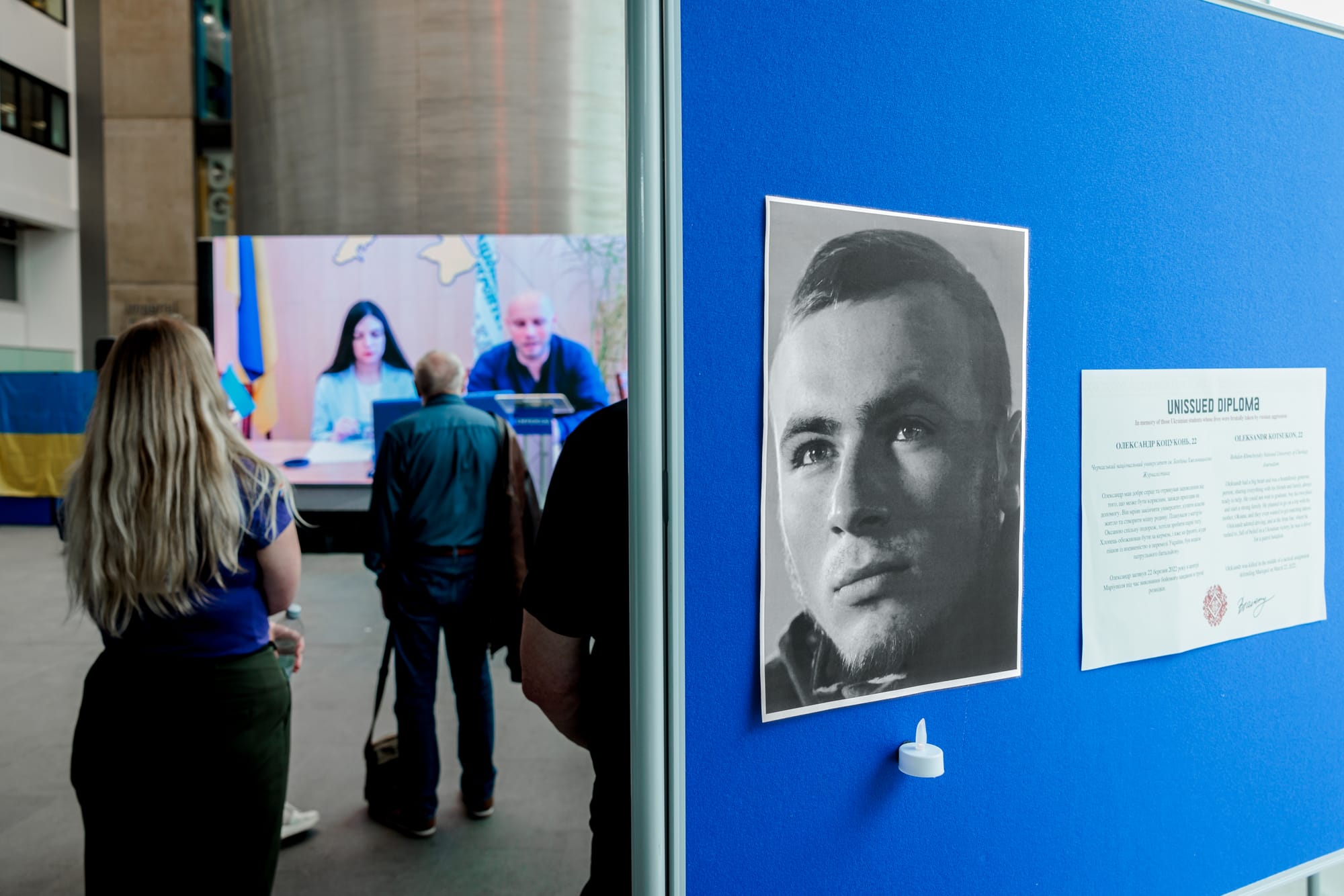
Danil also says that people’s knowledge of the war has slumped: “I recently took an Uber, and the driver asked me where I was from. I said I was Ukrainian. And he had this question, ‘how did the war end?’ I think it’s very indicative of how the knowledge of the war in the British society – especially among those people who are not very into politics – decreased drastically, exponentially compared to a couple of years ago.” He notices that the visibility of the conflict has lowered, both in traditional media and social media, where mentions of the war have been drowned in a flood of content.
The British government initially launched life-saving initiatives to help Ukrainian refugees, including the Ukrainian scheme, which granted successful applicants the right to stay in the UK and pay home fees in universities. Danil is grateful for these initiatives, but regrets that support is now waning: the scheme has been extended once already and its future is unclear. Crucially, these years spent in the UK don’t count towards settlement or citizenship. “So there are things that might look like they make our lives easier”, he concludes, “but that’s only what it looks like at first glance. In reality, a lot of those students have families, parents, grandparents, uncles, brothers, sisters who are still in Ukraine.”
Indeed, the war has taken a heavy toll on the mental states of Ukrainians at Imperial. “More than 50% of Ukrainian students still have their families in cities such as Kharkiv or Kherson, that are close to the border with Russia and are bombed every single day. They have this impact when they communicate with their parents, which increases their stress levels. They might look like they’re getting used to it, but in reality that’s just the way the organism adapts,” reckons Danil.
“I have a friend whose father died on the frontline last year. She was in the community of the Ukrainian society, a very proactive, fantastic girl,” he recalls. Her heartbreaking story is but one among many. Another member of the society received a call from her parents one morning, informing her their building had been struck by a missile. “Luckily they survived, but that has clear implications on the state of a student, their performance, their feelings.” The Russian army has conducted indiscriminate attacks on civilian targets, including residential buildings: according to Ukrainian estimated, 97% of Russian missiles have hit such targets.
“A good friend of mine has parents in Kherson – that’s the region occupied by the Russians,” continues Danil, “I ask him the usual question for the Western world: ‘Hi, how are you?’ And he does not respond with ‘I’m good, thanks’”. Instead, the student explains that his father, a farmer, refused to cooperate with the invading forces: “they took him away from his family, from his wife, from his other son, into his basement to teach him a lesson. And this includes physical impact as well as financial impact.”
Thankfully, the Ukrainian community has demonstrated exceptional solidarity. Danil emphasises that any Ukrainian seeking help – to deal with anything from personal statement application to a foreign university to a home destroyed by bombs – can simply contact the community to be put in contact with “the person who’ll be able to guide them”.
Russian-speaking society interview
Perhaps less visibly so, the Russian-speaking community at Imperial and abroad has also been gravely affected by the Kremlin’s war, as well as repression at home. Roughly half of Russophones live outside of Russia, and Alex clarifies that their society is open to all of them: “We have members from the main parts of Russia, but we also have a lot of members from Kazakhstan, Georgia, Armenia, the Baltic countries, and even a couple of Ukrainian members. I think this is really good because it helps broaden connections and build up this community.”
Immediately after the invasion, in an attempt to weaken Mr Putin’s regime, Western governments led by the United States and the European Union instigated drastic sanctions against the trade of Russian goods, the property of high-profile Kremlin-linked individuals, and the movement of Russian capital abroad. Alex denounces the sanctions’ consequences on the lives of ordinary Russian émigrés at home.
In particular, many Russians are faced with great difficulty to pay for tuition fees, as their money is stuck in their native country. “I don’t think there is a single bank that still allows you to transfer large sums of money,” they explain. “If you had time to do it before the sanctions, you could use the last bank left to transfer money into your account. Some people still go back to Russia to take cash and then come back here.” Some of Alex’s friends, enrolled for a master’s degree, had to leave university with only a bachelor’s, for a lack of access to their tuition money. “I didn’t even have the option to open an international USD account at HSBC,” they go on, “I asked for an explanation, and they said, ‘It’s just your passport. Sorry.’”
Alex says expatriate Russians feel a pervasive lack of visibility and understanding of the issues they face. They emphasise that this doesn’t detract from the horrors the Ukrainian community lives through: “Of course, we’re not saying that we are affected by something that’s worse than what affected Ukrainian students. It’s not even close, but it’s not nothing either.” They also throw light on what some perceive as a lack outspoken criticism of the Kremlin’s actions: “The Ukrainian society is trying to raise awareness. For us, it’s harder. Some people here have nothing to lose. But others like me go back to Russia and have a family still living there. So if we just go out and start chanting that we’re against the war, this might have serious consequences for ourselves.”

Life has become harder in other ways. Russian-speaking society members have had to face aggressive messages of social media users asking them why they “promote the language of a terrorist state”. “We don’t react to that, but it makes you realize that some people might encounter it personally and might not even know what to do,” they analyse. “You either have a stable emotional condition or not. If you’re not so stable, then it affects you a lot. If you’re stable, you learn to live with that and to just accept that some people will draw conclusions without giving it a proper thought.”
As a result, many Russians living abroad struggle with their own identity. “I think it’s really an absurd situation that someone should be ashamed of where they were born,” muses Alex, who also blames the media for accusing Russians that try to cope with the situation of being complacent. “For instance, if an artist kept having concerts in Russia after the beginning of the war, they got labelled as a murderous monster and weren’t allowed in Europe, in the US, in the Western part of the world. And I think when as a regular person you get exposed to it, that image builds up in your head. You’ll end up saying you’re from Estonia because your parents moved there rather than say you’re Russian.”
This has impacted the visibility of the society. Last year, the committee decided not to display a Russian flag at the Fresher’s Fair, to avoid unwanted offense against people who associate the flag with the Russian government or army. This confused students who might have liked to join the society. “This year, we did put our flag on, and we had more second- or third-years coming up to us and saying, ‘Oh, we thought the society was closed’”.
Alex remembers that some acquaintances questioned them on the invasion when it started, but that these interrogations stopped being “a way to judge” him when they explained their views: “we’re friends, no matter what goes on.” And for now, employment prospects have apparently not been undermined by the war. Businesses are “looking to make money, and if they think you’re a right fit for them, they hire you, no matter where you come from,” quips Alex.
The society therefore primarily aims to provide support, by organising regular events, sometimes jointly with other universities. “The goal of our society is mainly to create a safe space for Russian people,” outlines Alex, “where you can come and speak in your language. It’s a natural desire for every person – there is nothing wrong with wanting to speak the language your parents taught you. […] The best thing we can do is give Russian people the opportunity to come to our society without shame, without the fear of being judged for saying ‘Yes, I come from Russia. Yes, I was born in Moscow.’”
At the time of writing, Mr Trump claims to engaged in discussions with Mr Putin to negotiate a end to the violence. Whether Ukraine obtains strong guarantees against further violence, whether Europe finally wakes up to the threat of aggression, whether the authoritarian Russian regime finally falters is out of our hands. Nonetheless, it remains everyone’s duty to ensure that the distinctions between regimes and populations, politics and culture, are respected.

